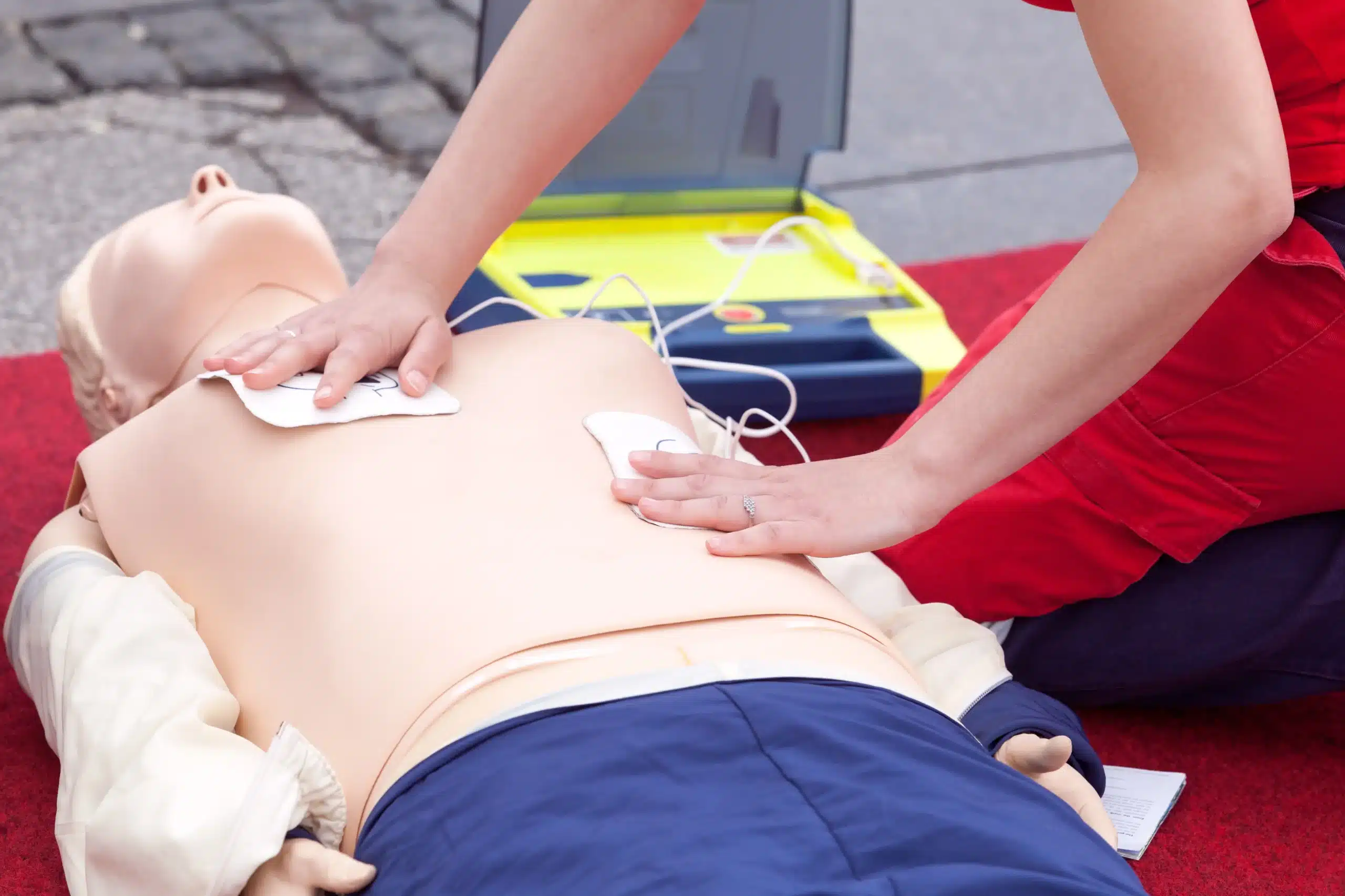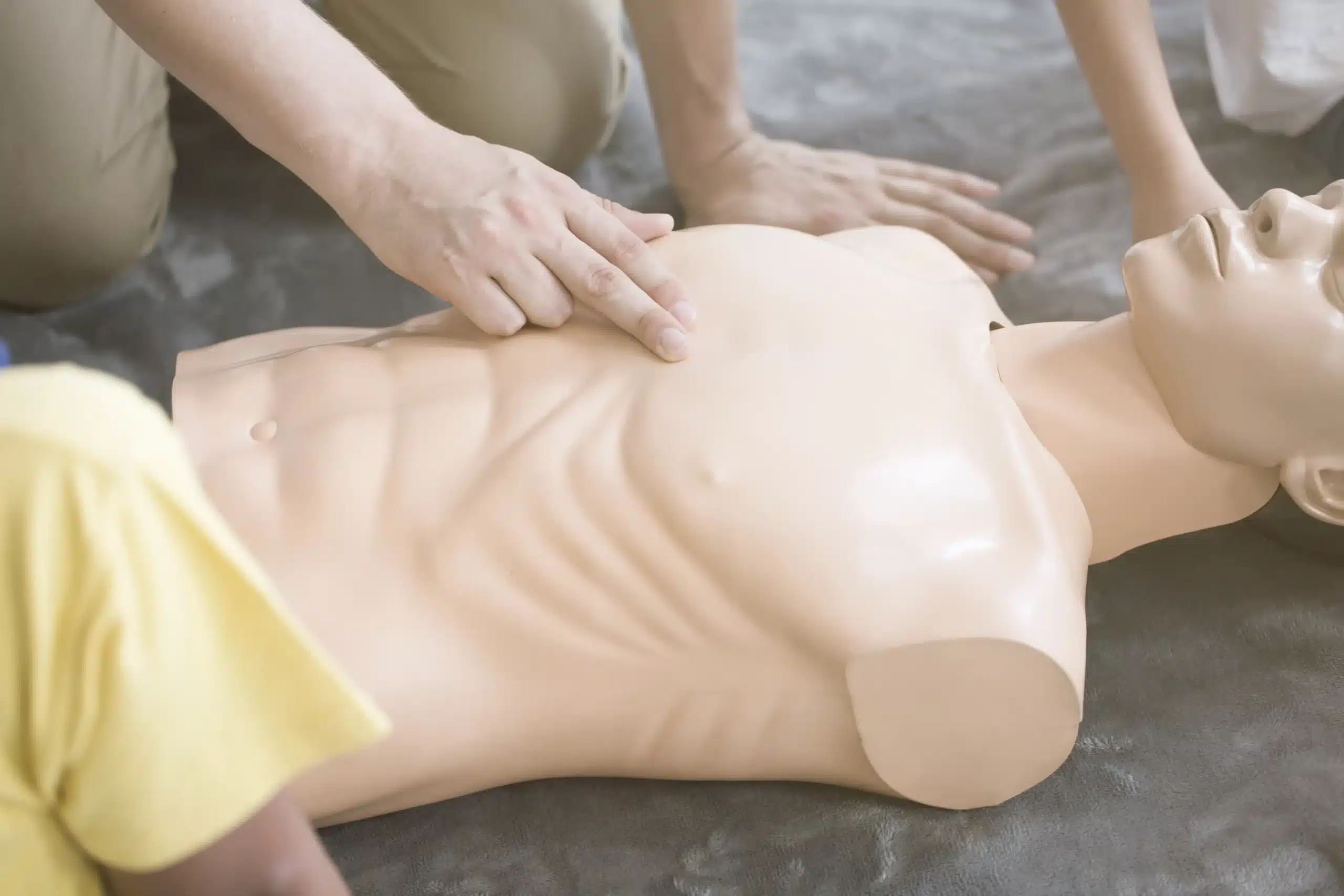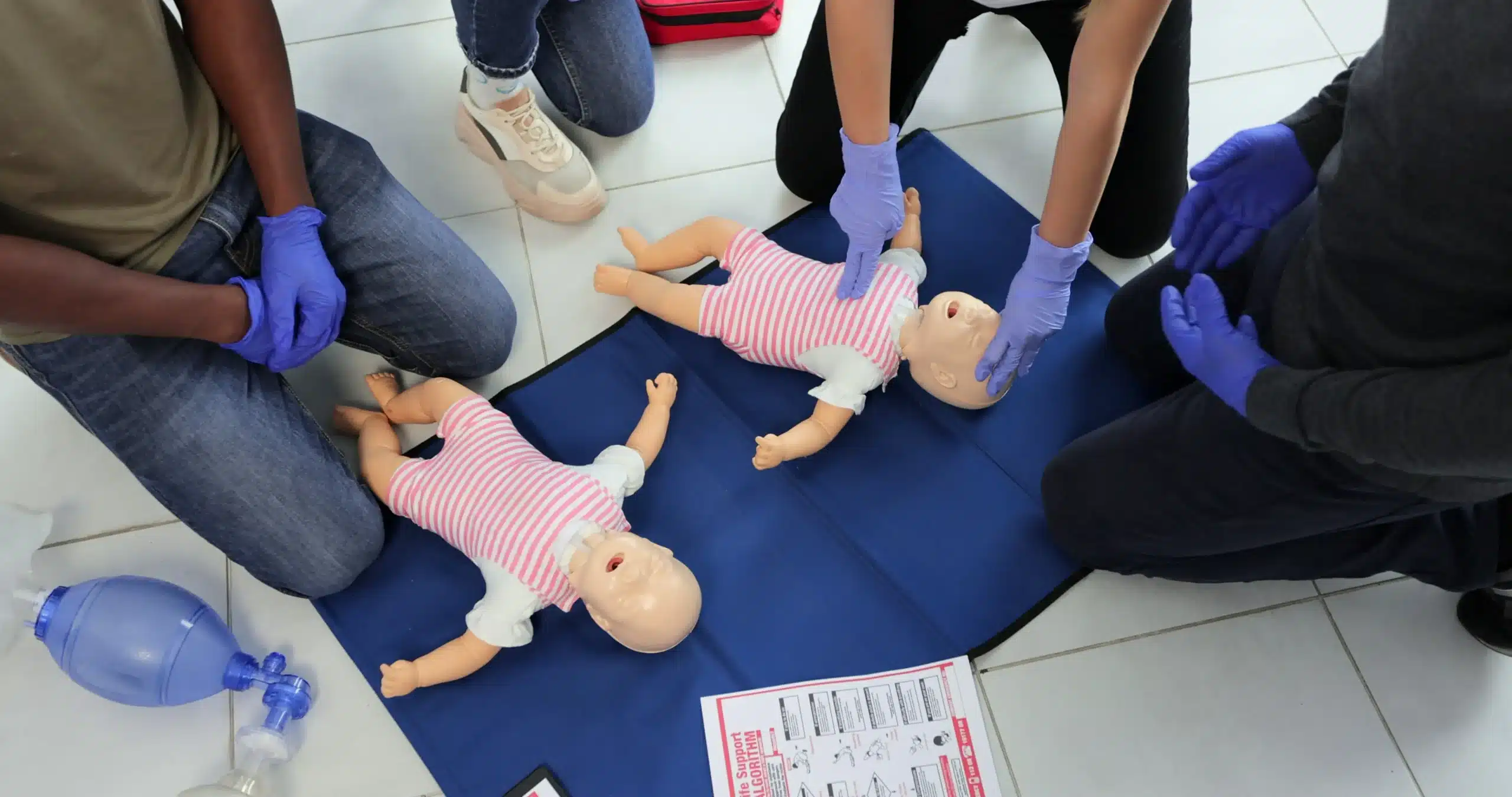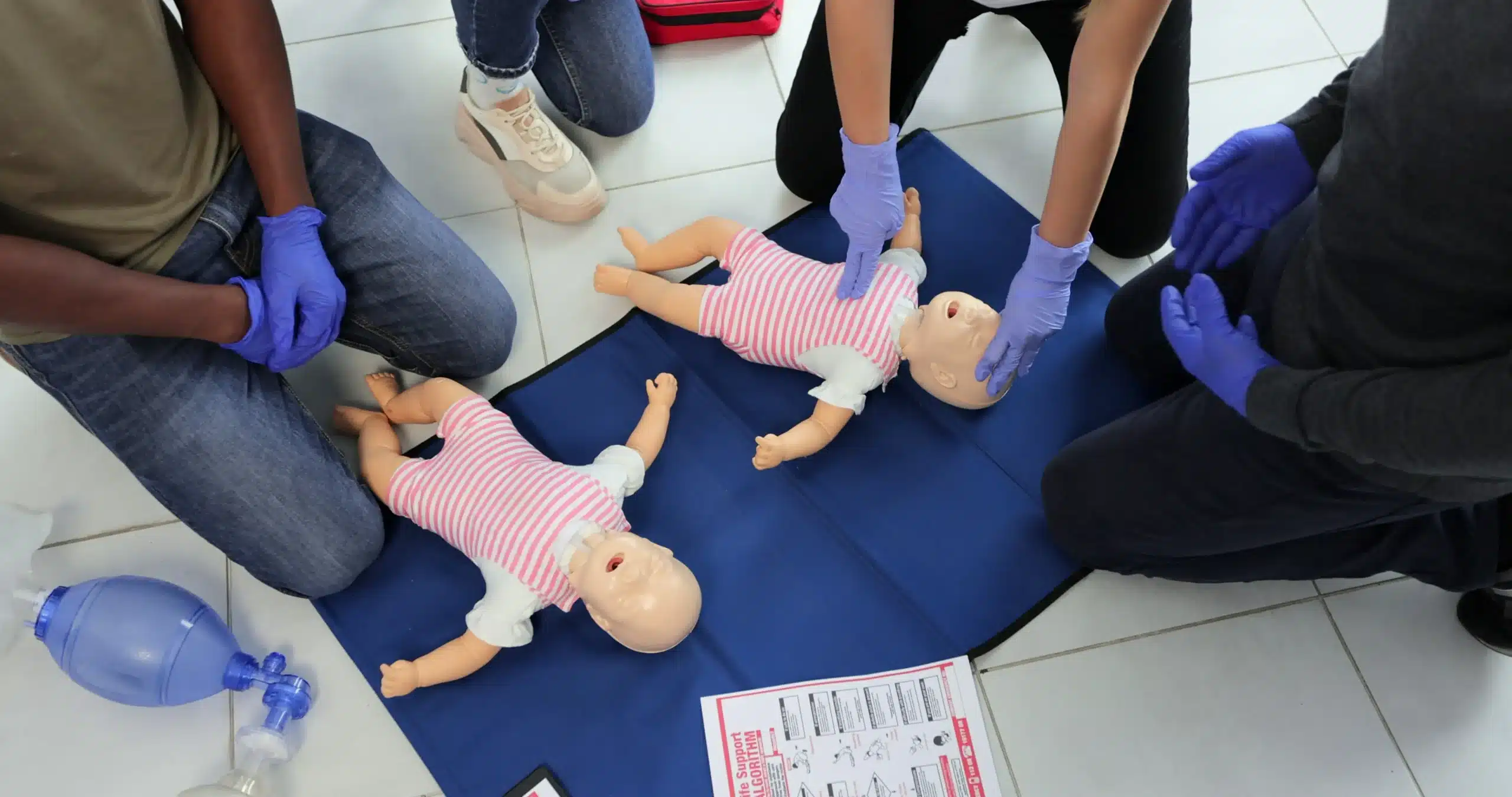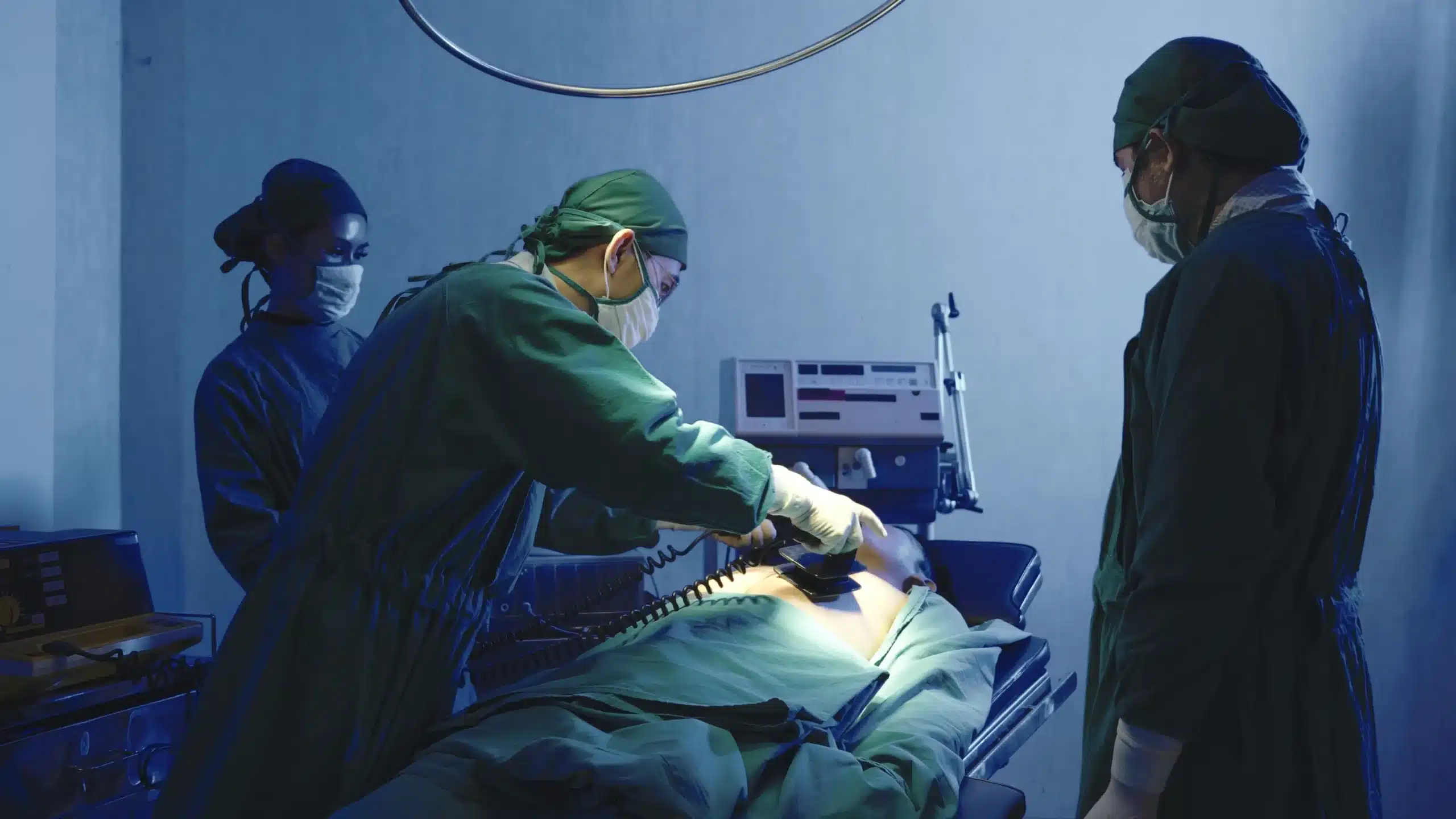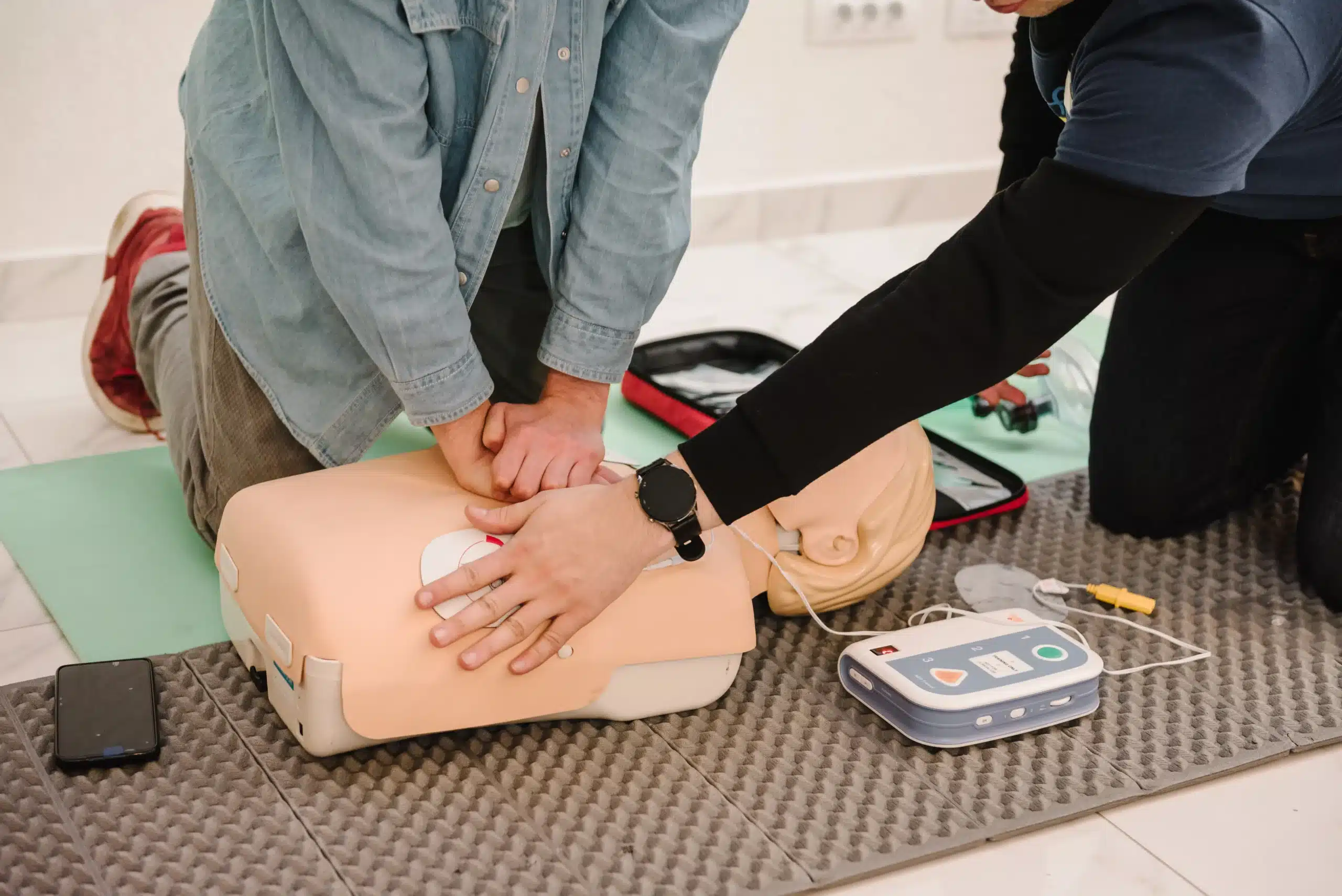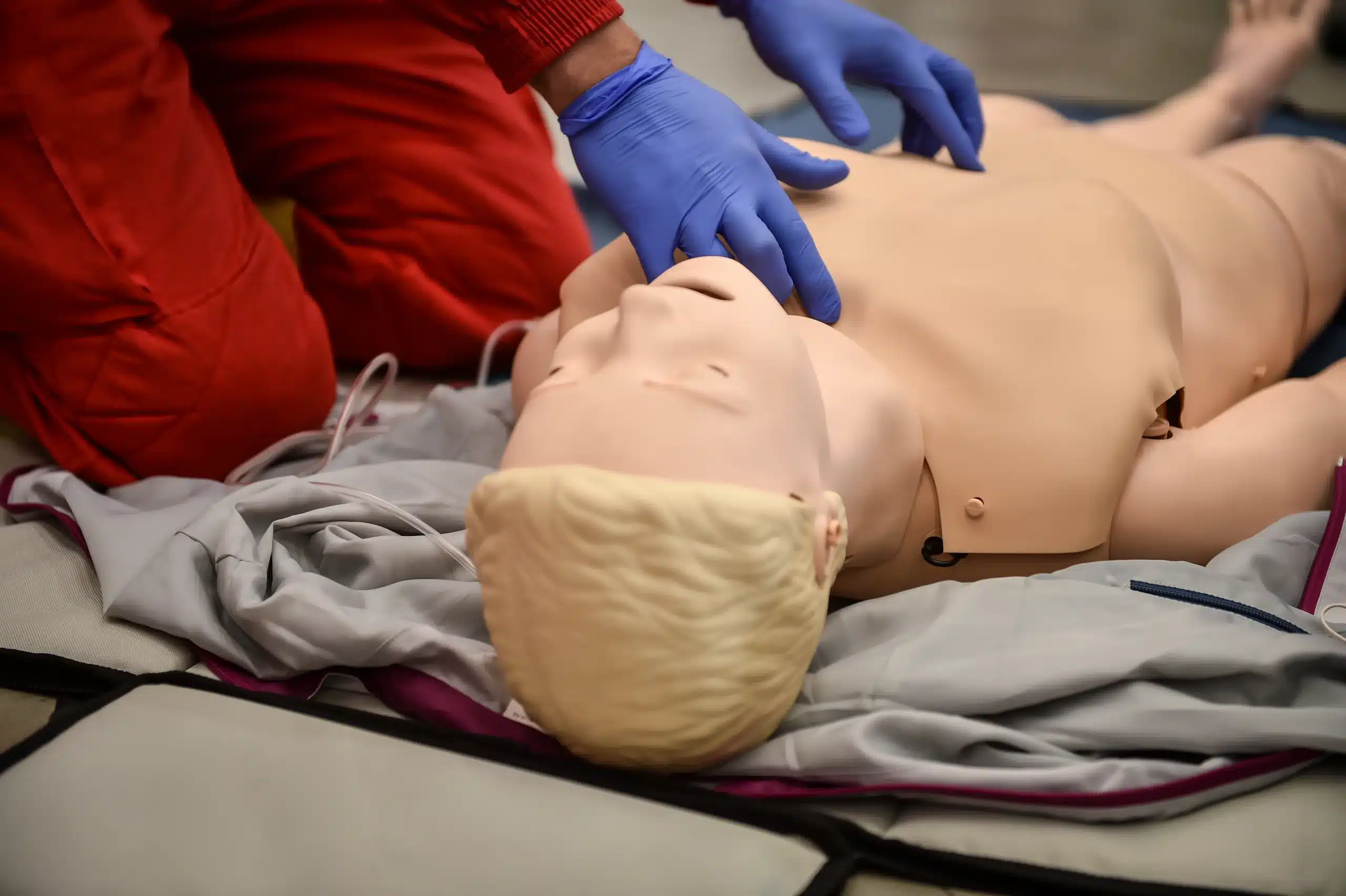As a healthcare professional, your CPR skills can make all the difference in a life-or-death situation. But traditional CPR training often falls short when it comes to long-term skill retention. RQI in Berkeley offers a new paradigm: short, frequent practice sessions that fit your busy schedule. This article explores the ins and outs of Resuscitation Quality Improvement (RQI), a program designed to help you maintain peak CPR performance. We’ll delve into the key features of RQI, the different courses available in Berkeley (BLS, ACLS, PALS), and how RQI’s innovative technology enhances the learning experience. Discover how RQI can transform your confidence and competency in CPR.
Key Takeaways
- RQI keeps CPR skills sharp: Frequent, short practice sessions combat skill decay and build confidence for real-world emergencies, unlike traditional CPR classes.
- RQI training is flexible and convenient: Online modules and accessible skills stations make it easy to fit training into any schedule.
- RQI improves patient care: The focus on consistent, high-quality CPR performance leads to better outcomes and increased confidence among healthcare providers.
What is RQI? How Does It Differ from Traditional CPR?
Resuscitation Quality Improvement (RQI) is an American Heart Association (AHA) program designed to help healthcare professionals maintain excellent CPR skills. Unlike traditional CPR training that typically happens every two years, RQI uses short, frequent practice sessions. This approach builds mastery and combats skill decay, ensuring you’re always ready to respond effectively in a real-life emergency. Learn more about RQI.
CPR Training: Then and Now
Traditional CPR classes are a good starting point, but retaining information long-term can be challenging. RQI addresses this by providing short, regular practice sessions, usually every three months. This consistent reinforcement helps healthcare providers maintain their skills and confidence. RQI uses quality improvement sessions and e-credentials to verify competence, giving hospitals a clearer picture of their staff’s CPR skill level. This shift from infrequent training to regular practice represents a significant change in CPR education. RQI offers a more data-driven and skills-focused approach, ensuring healthcare professionals are always prepared to deliver high-quality CPR. Read more about how RQI is transforming resuscitation competency.
Key RQI Features
RQI’s core principle is low-dose, high-frequency training—like a regular workout for your CPR skills. You’ll practice for about 10 minutes each quarter on a high-tech manikin that provides real-time feedback. This consistent practice builds muscle memory and confidence. RQI also uses online modules and assessments, offering flexible learning that fits into busy schedules.
RQI Courses in Berkeley: BLS, ACLS, and PALS
This section explores the different RQI courses offered in Berkeley, focusing on BLS, ACLS, and PALS. These courses equip healthcare providers with the skills and knowledge to respond effectively to various emergencies.
BLS RQI
The American Heart Association RQI program for Basic Life Support (BLS) offers a streamlined and efficient path to certification. It’s a popular choice for medical professionals in Berkeley looking to renew or obtain their BLS certification cards. RQI uses a blended learning approach, combining online modules with hands-on skills sessions. This allows for flexible learning and ensures competency in core BLS skills like CPR, using an AED, and relieving choking. The emphasis on regular practice and assessment helps providers maintain their skills and confidence. For healthcare providers in Berkeley, RQI BLS is a practical way to stay current with resuscitation guidelines.
ACLS RQI
Advanced Cardiovascular Life Support (ACLS) is crucial for healthcare professionals responding to complex cardiovascular emergencies. ACLS RQI in Berkeley provides a modern approach to mastering these essential skills. Like BLS RQI, it combines online learning with in-person skills sessions and emphasizes continuous quality improvement. This method lets providers learn at their own pace and focus on key algorithms and interventions. The RQI format also ensures regular practice and assessment, improving retention and performance in critical situations. Berkeley CPR Classes offers AHA-certified ACLS courses using the RQI program.
PALS RQI
Pediatric Advanced Life Support (PALS) focuses on the specialized skills needed to respond to emergencies involving infants and children. PALS RQI courses in Berkeley offer a comprehensive curriculum covering various pediatric emergencies. The program’s blended learning format and focus on continuous quality improvement make it a convenient and effective way for healthcare providers to obtain and maintain their PALS certification. Regular skills assessments and ongoing education ensure providers are prepared to handle pediatric emergencies with confidence. The RQI program offers a convenient path for healthcare professionals in Berkeley to obtain their official American Heart Association PALS certification.
Benefits of RQI Courses in Berkeley
RQI courses offer several advantages, especially for healthcare professionals in Berkeley. These benefits go beyond traditional CPR training, focusing on skill maintenance and real-world application.
Enhance Your Skills and Confidence
RQI training develops cognitive and psychomotor skills through patient case simulations. This blended learning approach builds a strong foundation for confident CPR performance. You’ll not only understand the why but also master the how, leading to increased confidence in your abilities. This comprehensive approach, as described by RQI Partners, ensures you’re prepared for actual emergencies.
Improve Real-Life Performance
Regular skills assessments and e-credential verification through RQI provide a clear picture of your CPR competency. This ongoing evaluation helps you identify areas for improvement and maintain a high level of proficiency. This focus on quality improvement, as highlighted in the American Healthcare Leader, translates to better real-life performance during critical situations. Knowing your skills are sharp can make all the difference when responding to a real emergency.
Flexible Learning for Busy Professionals
RQI’s flexible learning model accommodates the demanding schedules of healthcare professionals. With online modules and accessible training stations, you can fit training into your routine. Surefire CPR discusses how this flexibility makes it easier to stay current with your certifications without sacrificing valuable time. This adaptable approach ensures you can maintain your skills and certifications without disrupting your workflow.
RQI Technology: Manikins and Online Learning
RQI CPR training stands out because of its innovative use of technology, blending online learning with hands-on practice using voice-assisted manikins. This combined approach creates a dynamic and effective learning experience.
How Voice-Assisted Manikins Work
The RQI program uses special voice-assisted manikins (VAMs) that give students immediate feedback during CPR practice. These aren’t your typical CPR dummies! VAMs are sophisticated tools equipped with sensors and voice prompts that guide you through each compression and rescue breath. They monitor your technique in real-time, providing feedback on your depth and rate of compressions, hand placement, and ventilation volume. This instant feedback helps you refine your skills and build muscle memory, ensuring you perform CPR correctly and with confidence. Learn more about RQI technology.
Online Modules in RQI
RQI training isn’t just about hands-on practice; it also includes convenient online learning modules you can complete at your own pace. These modules cover the essential knowledge and cognitive skills needed for effective CPR. They offer a flexible way to learn the material before practicing your skills on the manikins. This blended learning approach ensures a comprehensive understanding of CPR principles and techniques. The program typically begins with two online modules, building a foundation for the practical training at designated RQI skill stations.
Enroll in RQI Classes in Berkeley: Process and Schedules
This section provides a clear, step-by-step guide to enrolling in RQI courses in Berkeley, along with information on class schedules and availability.
Enroll in RQI: A Step-by-Step Guide
The American Heart Association RQI (Resuscitation Quality Improvement) program offers a modern and efficient path for medical and healthcare professionals in Berkeley to earn their official AHA BLS, ACLS, and PALS certifications. The process starts with an online component you can complete at home, typically taking a few hours. After finishing the online portion, you’ll schedule an in-person skills session with a local provider like Berkeley CPR Classes. Once you successfully complete both the online cognitive component and the in-person skills evaluation, you’ll receive your AHA certification card, valid for two years.
Class Schedules and Availability
Safety Training Seminars offers convenient in-person skills sessions for CPR and First Aid training seven days a week in Berkeley and nearby cities. This flexible scheduling makes it easier to fit your training into your busy schedule and quickly obtain your American Heart Association certification card. For specific dates and times for BLS, ACLS, and PALS courses, check the Safety Training Seminars website. Upon successful completion of the course, you’ll receive your official AHA certification card, valid for two years.
Maintain Your Certification: RQI’s Continuous Learning
RQI certification goes beyond a one-time class. It emphasizes continuous learning to maintain your skills and knowledge. This ongoing process ensures you’re always prepared to deliver high-quality CPR.
Quarterly Skills Assessments
One of the core components of RQI is the quarterly skills assessment. These short, 10-minute sessions focus on practicing essential CPR techniques. This regular practice combats skill decay and helps you achieve true mastery. Think of it like a regular tune-up for your CPR skills, ensuring they stay sharp and effective. This consistent reinforcement helps build confidence and muscle memory, so you can act quickly and efficiently in a real emergency.
Ongoing Education and Updates
RQI also keeps you up-to-date with the latest advancements in resuscitation science. The program incorporates ongoing education and updates, ensuring your knowledge aligns with current American Heart Association guidelines. This commitment to continuous improvement is crucial for healthcare providers. RQI’s blended learning approach, combining online modules with hands-on practice, makes staying current convenient. This helps you integrate new knowledge into your practice, enhancing your CPR competency. Nursing schools and healthcare institutions are increasingly adopting RQI to maintain high standards of CPR performance. Unlike traditional biennial training, RQI offers a more dynamic learning experience, leading to better retention and improved patient outcomes.
RQI in Berkeley: Meeting AHA Certification Standards
AHA Certification Process
The American Heart Association (AHA) offers a streamlined certification process through its RQI (Resuscitation Quality Improvement) program. RQI is a modern and efficient way for healthcare professionals in Berkeley to earn their official AHA certification cards. Instead of traditional classroom renewal, RQI uses low-dose, high-frequency training sessions to reinforce skills and improve competency. This allows healthcare providers to complete training on a more flexible schedule, fitting it into their busy routines. Upon successful completion of the RQI course, participants receive an official AHA certification card, valid for two years, ensuring they meet the CPR training standards required by most healthcare facilities. You can find more information about RQI and AHA certifications on the Berkeley CPR Classes website.
RQI Certification: Validity and Recognition
The RQI program not only provides certification but also focuses on enhancing the quality of CPR training through continuous skills assessment. Regular practice and assessment help address “skills decay,” ensuring healthcare professionals maintain high-quality CPR performance. This consistent reinforcement leads to increased confidence and improved outcomes in real-life emergencies. RQI’s emphasis on quality improvement and competence verification gives hospitals and healthcare institutions a clear picture of their staff’s CPR skill levels. For a deeper understanding of how RQI transforms resuscitation competency, check out this article. The program’s effectiveness has also been demonstrated in nursing education, helping students develop and retain essential CPR skills.
Choose the Right RQI Course for Your Healthcare Career
Selecting an RQI Course: Factors to Consider
When choosing an RQI course, think about the program structure and if it aligns with your career goals. The American Heart Association’s RQI program is known for its modern approach, offering healthcare professionals a streamlined way to renew their BLS, ACLS, and PALS certifications. This program focuses on practicing CPR skills quarterly, which helps maintain skills and build proficiency. Consider factors like your current certification level, learning style (online or in-person), and the provider’s schedule and location. For a deeper look into RQI’s benefits, read more about how RQI transforms resuscitation competency.
RQI Providers in Berkeley
Finding the right provider is just as important as choosing the right course. Here are a few options in Berkeley:
Safety Training Seminars
Safety Training Seminars, a woman-owned AHA Training Center, offers high-quality American Heart Association courses, including BLS, ACLS, PALS, CPR, and First Aid in Berkeley, CA. They’re committed to providing excellent training for healthcare professionals. Learn more about their CPR and First Aid training. They also offer the EMSA Child Care Health & Safety program for those needing specialized training. Check out their group discounts and low price guarantee. They also offer NRP courses.
Berkeley CPR Classes
Berkeley CPR Classes offers AHA-certified BLS, ACLS, and PALS courses using the RQI program. This training center focuses on giving healthcare professionals the skills and certifications they need. Find more information about their RQI classes.
Bay Area CPR
Bay Area CPR provides various American Heart Association courses, including CPR, BLS, ACLS, and PALS, in Berkeley, CA. Their programs are designed for healthcare professionals looking to improve their skills and maintain their certifications. Enroll now.
Common Misconceptions about RQI Training
It’s normal to have questions about a new approach to training like RQI. Let’s clear up some common misconceptions about RQI training and CPR performance.
Address Concerns About Effectiveness and Complexity
One concern about RQI is its effectiveness compared to traditional CPR training. Some worry that shorter, more frequent practice sessions won’t adequately prepare healthcare providers for real-life emergencies. However, studies show that RQI’s emphasis on consistent practice combats “skills decay” and leads to higher competency. The RQI program provides quarterly CPR skills practice sessions, roughly 10 minutes each, to build and maintain “skills mastery.” This approach ensures skills remain fresh and readily available. This distributed practice model reinforces skills and improves retention, ultimately leading to better patient outcomes.
Dispel Myths About CPR Performance
Another area ripe with misconceptions is CPR performance itself. Some healthcare providers, even with valid CPR certification, may not deliver high-quality CPR during actual cardiac arrests. This highlights a critical gap between certification and consistent, effective performance. Brian Eigel addresses this concern, emphasizing ongoing training to bridge this gap and improve cardiac arrest competency across the healthcare industry. Additionally, there are common myths about the specifics of CPR. Some believe mouth-to-mouth resuscitation is essential, while others fear that imperfect CPR is unhelpful. The truth is that chest compressions are the most crucial element of CPR, and even imperfect CPR can significantly improve a person’s chances of survival. RQI training emphasizes high-quality chest compressions and helps providers develop the confidence to act quickly and effectively in emergencies.
What RQI Participants Say
This section highlights the positive impact of RQI training as reported by participants.
Increased Confidence in Emergencies
RQI’s emphasis on regular practice and skills mastery builds confidence for healthcare professionals facing emergency situations. Knowing they have consistently honed their CPR skills through quarterly assessments, participants report feeling better prepared to respond effectively under pressure. This increased confidence translates to a greater sense of preparedness and control in high-stakes environments, ultimately leading to improved patient outcomes. Experts explain how RQI helps hospital staff understand “the actual level of CPR skill across their institution, leading to increased confidence in their ability to respond effectively in emergencies.” This regular practice combats skills decay and fosters skills mastery, significantly increasing the chances of survival after cardiac arrest.
Improved Job Performance for Healthcare Professionals
RQI’s focus on consistent, high-quality CPR performance directly translates to improved job performance for healthcare professionals. Nursing students, for example, benefit from RQI’s structured approach, developing and retaining essential CPR skills throughout their education. This prepares them to confidently enter the workforce with the ability to deliver effective CPR in real-life scenarios. The American Heart Association’s goal with RQI is to improve CPR competency through frequent skill renewals, ultimately enhancing the job performance of healthcare professionals. This focus on competency empowers healthcare providers to deliver the highest standard of patient care, contributing to better outcomes and a stronger sense of professional fulfillment.
Related Articles
- RQI Classes in Alameda, CA – Alameda CPR Classes
- CPR Training in Oakland: Your Guide to Certification – Alameda CPR Classes
- Why CPR is Essential for Saving Lives
- The Science Behind Effective CPR: A Comprehensive Guide
- Free CPR Classes: Your Guide to Life-Saving Skills – Alameda CPR Classes
Frequently Asked Questions
How is RQI different from traditional CPR training?
RQI focuses on short, frequent practice sessions, typically quarterly, rather than the traditional two-year renewal cycle. This approach helps maintain skills and prevents skill decay, ensuring you’re always ready for a real-life emergency. It also incorporates technology like voice-assisted manikins and online modules for a more comprehensive learning experience.
What are the main benefits of taking an RQI course?
RQI builds confidence through regular practice and personalized feedback. The flexible online modules and shorter skills sessions make it easier to fit training into a busy schedule. Most importantly, it ensures you’re always prepared to deliver high-quality CPR, potentially saving lives.
What does an RQI skills session involve?
You’ll practice on a voice-assisted manikin that provides real-time feedback on your technique. These sessions are short, about 10 minutes each quarter, focusing on maintaining muscle memory and consistent, high-quality CPR performance.
Where can I find RQI courses in Berkeley?
Several providers in Berkeley offer RQI courses, including Safety Training Seminars, Berkeley CPR Classes, and Bay Area CPR. Check their websites for schedules and course details to find the best fit for your needs. Make sure the provider is an authorized AHA Training Center to ensure you receive a valid certification.
How do I maintain my RQI certification?
RQI certification requires ongoing maintenance through quarterly skills assessments and continuing education. This ensures your skills stay sharp and your knowledge remains current with the latest AHA guidelines. This commitment to continuous improvement is key to delivering effective CPR.


